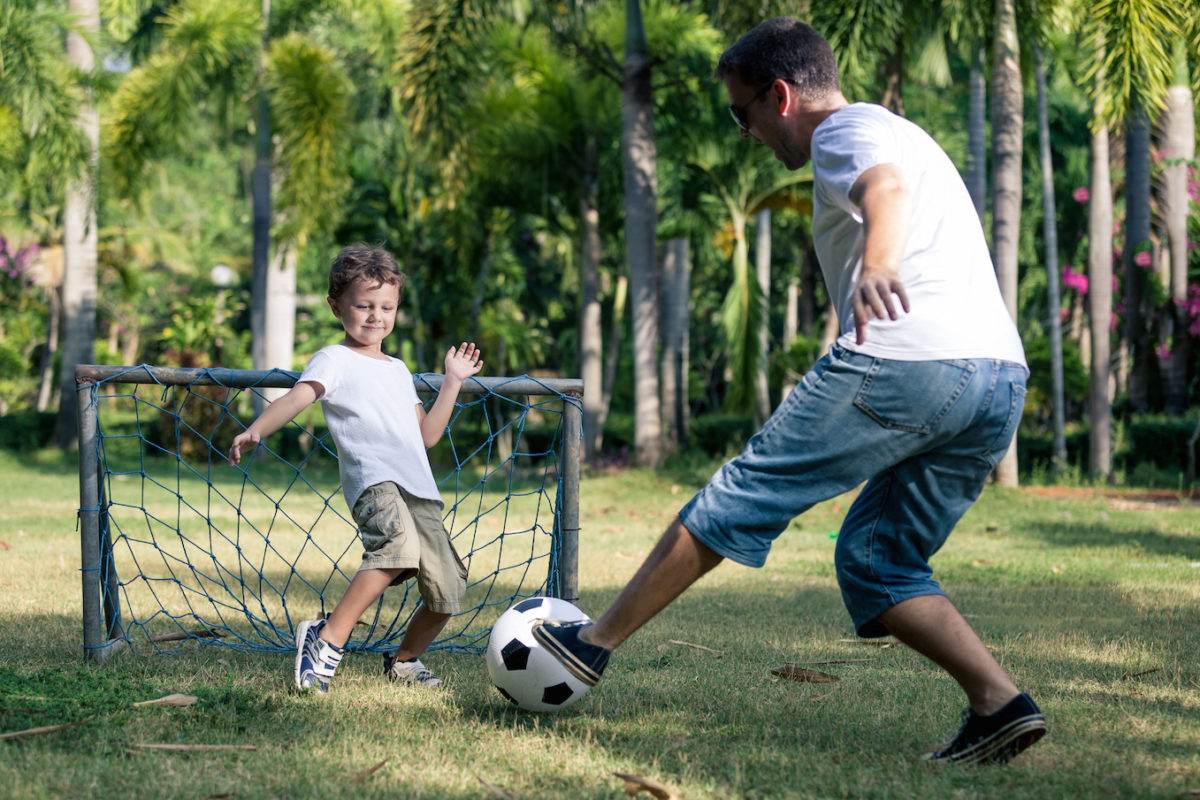How Loving Parents Can Emotionally Neglect Their Child

To understand how loving parents can emotionally neglect their child, meet Edward and Libby, both caring parents.
Edward the Child: Edward grew up in an abusive family. His alcoholic mother was mean, angry and physically abusive or threatening half the time, and ignored him the rest. Edward’s father loved his children. He worked 70 hours-a-week to support the family. In the few hours that he was home, he tried his hardest to appease his wife and to smooth over and hide her bad behavior. Edward and his siblings grew up fending off their mother and fending for themselves.
Edward the Father: Now Edward, to his great credit, wants to give his own children a better life. So he made sure that as soon as they each reached age 7, they started to master a musical instrument. He monitors their grades closely and requires them to play a varsity sport. “All three of my children are on their way to the Ivy Leagues,” he can often be heard saying.
Libby the Child: Libby grew up in a loving but large and somewhat chaotic household. The second of six children, she often was called upon to care for her younger siblings. In fact, her opportunities and activities were often limited by her responsibilities in the household. Libby grew up feeling bored, burdened, and frustrated that she was held back from the activities that she knew she would enjoy.
Libby the Mother: Now a parent herself, Libby loves her children every bit as much as her own mother loved her. Born rapid-fire, each less than a year apart, her three boys all love soccer and ice-cream. Libby works part-time but manages to schedule her hours so that she never misses a soccer game. Every day she drives the boys from one activity to the next, making sure they stay active, busy, and challenged.
In many ways, Edward and Libby are different. Edward was abused, and Libby was not. Libby’s family was large, and Edward’s was not. But in some very important ways, they are the same.
Indeed, they are each making a conscious effort to give their children a better life than they themselves had. For Edward, that’s attention and expectations. For Libby, it’s opportunity and activity. In these ways, they are both premium, top-grade parents who no one could ever fault.
But there is another factor, unseen and unknown, which unites these two. A factor which has left a profound mark upon them both, and is quietly, subliminally transferring, through them, to the next generation.
Edward and Libby are both what I call WMBNT parents. They are both Well-Meaning-But Neglected-Themselves. They both grew up with Childhood Emotional Neglect (CEN), and they are unwittingly raising their own children with Childhood Emotional Neglect.
CEN is automatically built into every abusive household. A parent who abuses a child emotionally, verbally, psychologically, sexually or physically is, by definition, emotionally neglecting him. So Edward grew up with massive Emotional Neglect from his mother. Although his father loved him, his primary attention and care went to his own alcoholic wife. No one in Edward’s life was attuned to his feelings and needs. No one ever asked Edward:
How do you feel?
What do you want?
What do you need?
Why are you angry, or sad, or hurt?
As an adult, Edward can remember his mother’s drinking and violence. He can remember his father’s love. But he can’t remember what he didn’t get. So now with his own children, he can correct the things he remembers. But he can’t correct the things that he does not. So Edward does not ask his children those questions, as his parents did not ask him.
Libby’s parents were both loving, and there was no abuse. But a very important ingredient was missing from her childhood. As an adult, Libby remembers her parents’ love for her, and she remembers caring for her siblings. She remembers feeling deprived of activities.
But what Libby cannot remember is what she did not get. So she does not ask her children those questions either. As she drives them back and forth, buys them ice-cream and cheers for them at games, she fails to notice what they are feeling. She fails to ask them what they need. She fails to see when they are hurt or sad or in pain. And she fails to teach them how to manage any of that.
Around and around the circle turns, delivering the numbing, isolating effects of CEN to another generation, and another and another.
All the while, loving, well-meaning, caring parents work hard, care for their kids, and correct the wrongs that were done to them, unaware that they are failing their children in a most vital way. Unaware that they can reverse the circle. Unaware that they must give their children what they never got themselves.
To learn more about WMBNT parenting and how to make sure you don’t pass Childhood Emotional Neglect down to the next generation, see the book, Running On Empty No More: Transform Your Relationships With Your Partner, Your Parents & Your Children.
To learn more about Childhood Emotional Neglect, see my first book Running on Empty No More.
This article was originally published on Psychcentral.com and has been republished here with the permission of the author and PsychCentral
